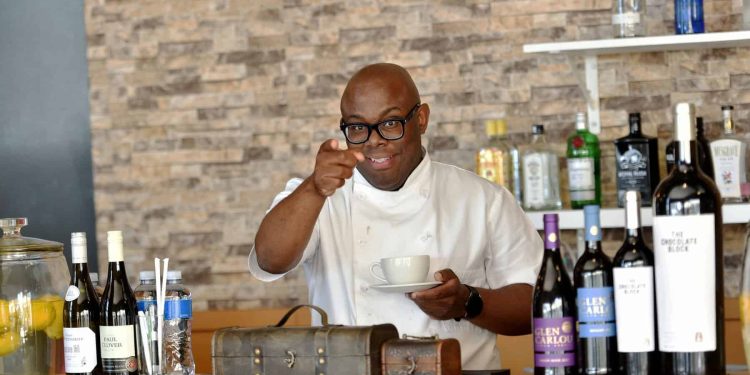Lusizo Mvula Henna, a renowned celebrity chef, faced the judgment of the commercial crimes court in Palm Ridge. The court sentenced him to 10 years in prison for orchestrating a complex financial scheme that defrauded the tax authorities of over R5 million.
As the magistrate, Phindi Keswa, pronounced the sentence, Henna, now 41 years old, wept uncontrollably. His culinary career, which began in 2003, took a dark turn as he was found guilty on six counts of fraud. Additionally, he received a six-year imprisonment term for 14 counts of money laundering.
Keswa emphasized that the funds fraudulently obtained by Henna could have been channeled toward improving the country’s infrastructure. These resources were meant for the public, and their misuse extended beyond mere financial losses.
Phindi Mjonondwane, the spokesperson for the National Prosecuting Authority (NPA), revealed that Henna, as the owner of Blaque Olive Chefs, had claimed undue value-added tax (VAT) refunds totaling R5.3 million. Shockingly, the South African Revenue Service (SARS) paid out R3.1 million to Henna despite the absence of any legitimate trading activities in Blaque Olive’s bank accounts to support these claims.
The court concluded that Henna’s submissions were solely intended to defraud SARS. After receiving the substantial sum of R3.1 million in his bank account, Henna swiftly laundered the funds within 14 days by transferring them to relatives, friends, and other associates.
During the proceedings, evidence highlighted the damage to the fiscus caused by such fraudulent schemes. Advocate Marius Oosthuizen argued that direct imprisonment was the appropriate consequence, emphasizing the detrimental impact of fiscal crimes on the government’s ability to provide essential services.
Furthermore, dealing sternly with offenders involved in such schemes would contribute to improving South Africa’s standing in terms of financial crimes. The justice system’s message to fiscus looters must be unequivocal: accountability will be enforced.










